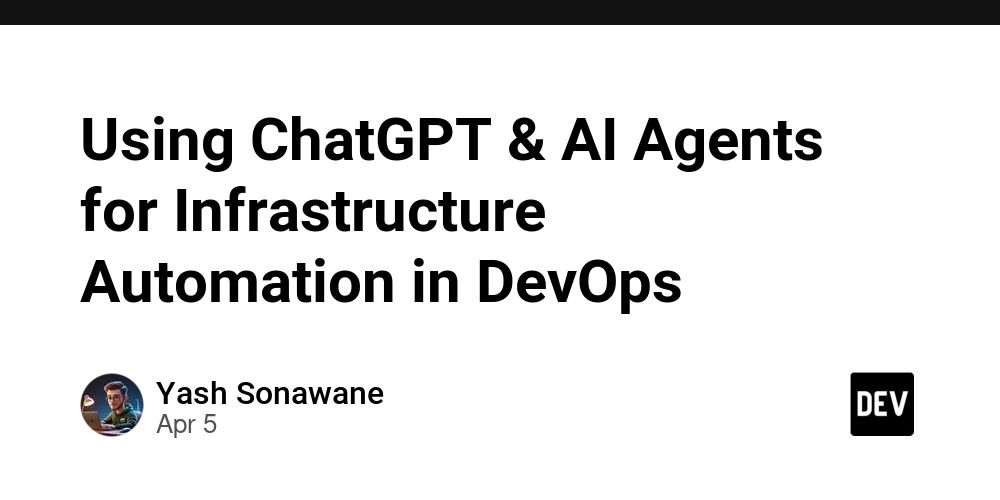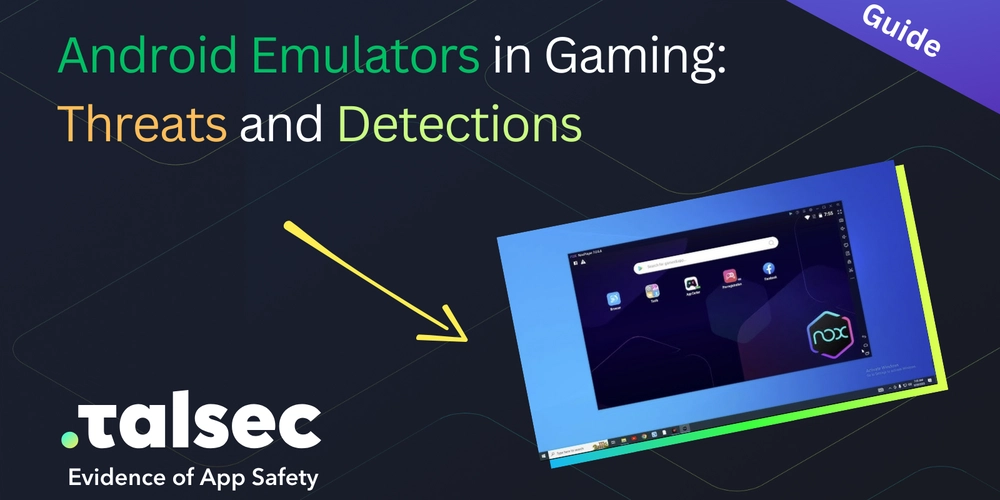Using ChatGPT & AI Agents for Infrastructure Automation in DevOps
Introduction The rise of artificial intelligence (AI) is transforming various industries, and DevOps is no exception. One of the most significant advancements in recent times is the use of AI-driven tools like ChatGPT and AI agents for infrastructure automation. These technologies are enhancing efficiency, reducing human errors, and accelerating the deployment of cloud-native applications. As DevOps teams manage increasingly complex infrastructures, AI-powered automation offers a scalable and intelligent approach to provisioning, monitoring, and managing cloud resources. What is Using ChatGPT & AI Agents for Infrastructure Automation? ChatGPT and AI agents for infrastructure automation refer to the use of generative AI models and automated bots to manage and streamline DevOps workflows. These AI systems can: Generate scripts and Infrastructure as Code (IaC) templates Automate cloud resource provisioning Assist in debugging and troubleshooting Optimize performance monitoring Improve security compliance checks AI agents integrate with DevOps tools such as Terraform, Kubernetes, Ansible, and AWS, helping engineers automate repetitive tasks while making data-driven decisions. How It Works Architecture and Core Components Natural Language Processing (NLP) – AI models like ChatGPT understand DevOps commands and generate code snippets or automation scripts. Infrastructure as Code (IaC) Generation – AI-powered tools can create Terraform, Ansible, or Kubernetes manifests based on textual prompts. Automation & Orchestration – AI agents interact with APIs of cloud providers (AWS, Azure, GCP) and DevOps tools to execute automated tasks. Monitoring & Incident Response – AI analyzes system logs, identifies anomalies, and suggests remediation steps. Security & Compliance – AI-driven scanning tools help detect vulnerabilities and ensure policy adherence. Real-World Example Imagine a DevOps engineer asking ChatGPT: "Generate a Terraform script for deploying an EC2 instance in AWS with security group settings." AI instantly generates the required Terraform configuration, reducing manual effort and errors. Key Features & Benefits Efficiency & Speed – AI significantly accelerates the development and deployment of infrastructure automation scripts. Error Reduction – AI-generated IaC minimizes syntax errors and misconfigurations. Scalability – AI agents handle complex infrastructures dynamically. Improved Security – Automated security audits reduce vulnerabilities. Enhanced Collaboration – AI assists DevOps teams with documentation and knowledge sharing. Use Cases & Industry Adoption Use Cases Auto-generating Kubernetes YAML configurations Predictive analytics for system health monitoring Automated rollback and disaster recovery plans ChatOps integration for real-time issue resolution Automated cloud cost optimization Industry Adoption Leading companies like AWS, Google Cloud, and Microsoft Azure are integrating AI into DevOps tools. Organizations like Netflix and Uber leverage AI-driven automation for infrastructure management, improving system reliability and efficiency. Comparison with Alternatives Feature ChatGPT & AI Agents Traditional Scripting Low-Code DevOps Tools Automation Level High (AI-driven) Manual Moderate Learning Curve Low High Medium Customization High Very High Limited Speed Fast Slow Moderate Error Handling AI-assisted Manual debugging Some automation Step-by-Step Implementation Example: Using ChatGPT to Generate a Terraform Script Prompt ChatGPT – Ask it to generate a Terraform script for AWS EC2. Review & Modify – Verify AI-generated code for accuracy. Deploy with Terraform – Run terraform apply to provision resources. Integrate with CI/CD Pipeline – Automate deployment using Jenkins/GitHub Actions. Monitor & Optimize – Use AI-powered monitoring tools like Datadog or Prometheus. Example Terraform Script Generated by AI provider "aws" { region = "us-east-1" } resource "aws_instance" "web" { ami = "ami-12345678" instance_type = "t2.micro" tags = { Name = "AI-Generated-Instance" } } Latest Updates & Trends AI-powered Kubernetes Operators – Automating cluster management. ChatGPT Plugins for DevOps – Integration with Terraform, Ansible, and Kubernetes. AI-driven Cloud Cost Optimization – Predictive analytics to reduce expenses. Advancements in AI Security Audits – AI-enhanced compliance tools for DevOps. Challenges & Considerations Accuracy & Reliability – AI-generated scripts may require manual validation. Security Risks – Unauthorized access or AI hallucinations can introduce vulnerabilities. Integration Complexity – Compatibility with existing DevOps workflows. Cost & Resource Consumption – Running AI agents can be resource-intensive. Conc

Introduction
The rise of artificial intelligence (AI) is transforming various industries, and DevOps is no exception. One of the most significant advancements in recent times is the use of AI-driven tools like ChatGPT and AI agents for infrastructure automation. These technologies are enhancing efficiency, reducing human errors, and accelerating the deployment of cloud-native applications. As DevOps teams manage increasingly complex infrastructures, AI-powered automation offers a scalable and intelligent approach to provisioning, monitoring, and managing cloud resources.
What is Using ChatGPT & AI Agents for Infrastructure Automation?
ChatGPT and AI agents for infrastructure automation refer to the use of generative AI models and automated bots to manage and streamline DevOps workflows. These AI systems can:
- Generate scripts and Infrastructure as Code (IaC) templates
- Automate cloud resource provisioning
- Assist in debugging and troubleshooting
- Optimize performance monitoring
- Improve security compliance checks
AI agents integrate with DevOps tools such as Terraform, Kubernetes, Ansible, and AWS, helping engineers automate repetitive tasks while making data-driven decisions.
How It Works
Architecture and Core Components
- Natural Language Processing (NLP) – AI models like ChatGPT understand DevOps commands and generate code snippets or automation scripts.
- Infrastructure as Code (IaC) Generation – AI-powered tools can create Terraform, Ansible, or Kubernetes manifests based on textual prompts.
- Automation & Orchestration – AI agents interact with APIs of cloud providers (AWS, Azure, GCP) and DevOps tools to execute automated tasks.
- Monitoring & Incident Response – AI analyzes system logs, identifies anomalies, and suggests remediation steps.
- Security & Compliance – AI-driven scanning tools help detect vulnerabilities and ensure policy adherence.
Real-World Example
Imagine a DevOps engineer asking ChatGPT: "Generate a Terraform script for deploying an EC2 instance in AWS with security group settings." AI instantly generates the required Terraform configuration, reducing manual effort and errors.
Key Features & Benefits
- Efficiency & Speed – AI significantly accelerates the development and deployment of infrastructure automation scripts.
- Error Reduction – AI-generated IaC minimizes syntax errors and misconfigurations.
- Scalability – AI agents handle complex infrastructures dynamically.
- Improved Security – Automated security audits reduce vulnerabilities.
- Enhanced Collaboration – AI assists DevOps teams with documentation and knowledge sharing.
Use Cases & Industry Adoption
Use Cases
- Auto-generating Kubernetes YAML configurations
- Predictive analytics for system health monitoring
- Automated rollback and disaster recovery plans
- ChatOps integration for real-time issue resolution
- Automated cloud cost optimization
Industry Adoption
Leading companies like AWS, Google Cloud, and Microsoft Azure are integrating AI into DevOps tools. Organizations like Netflix and Uber leverage AI-driven automation for infrastructure management, improving system reliability and efficiency.
Comparison with Alternatives
| Feature | ChatGPT & AI Agents | Traditional Scripting | Low-Code DevOps Tools |
|---|---|---|---|
| Automation Level | High (AI-driven) | Manual | Moderate |
| Learning Curve | Low | High | Medium |
| Customization | High | Very High | Limited |
| Speed | Fast | Slow | Moderate |
| Error Handling | AI-assisted | Manual debugging | Some automation |
Step-by-Step Implementation
Example: Using ChatGPT to Generate a Terraform Script
- Prompt ChatGPT – Ask it to generate a Terraform script for AWS EC2.
- Review & Modify – Verify AI-generated code for accuracy.
-
Deploy with Terraform – Run
terraform applyto provision resources. - Integrate with CI/CD Pipeline – Automate deployment using Jenkins/GitHub Actions.
- Monitor & Optimize – Use AI-powered monitoring tools like Datadog or Prometheus.
Example Terraform Script Generated by AI
provider "aws" {
region = "us-east-1"
}
resource "aws_instance" "web" {
ami = "ami-12345678"
instance_type = "t2.micro"
tags = {
Name = "AI-Generated-Instance"
}
}
Latest Updates & Trends
- AI-powered Kubernetes Operators – Automating cluster management.
- ChatGPT Plugins for DevOps – Integration with Terraform, Ansible, and Kubernetes.
- AI-driven Cloud Cost Optimization – Predictive analytics to reduce expenses.
- Advancements in AI Security Audits – AI-enhanced compliance tools for DevOps.
Challenges & Considerations
- Accuracy & Reliability – AI-generated scripts may require manual validation.
- Security Risks – Unauthorized access or AI hallucinations can introduce vulnerabilities.
- Integration Complexity – Compatibility with existing DevOps workflows.
- Cost & Resource Consumption – Running AI agents can be resource-intensive.
Conclusion & Future Scope
AI-driven infrastructure automation is revolutionizing DevOps by making operations faster, smarter, and more efficient. As AI evolves, we can expect deeper integrations with cloud-native platforms, better security automation, and more robust decision-making capabilities. The future holds promise for AI-powered DevOps workflows that require minimal human intervention, improving efficiency while maintaining reliability.
References & Further Learning
- OpenAI ChatGPT
- Terraform by HashiCorp
- Kubernetes AI Operators
- AWS AI-Driven DevOps
- Prometheus Monitoring
- Ansible Documentation
By leveraging AI agents in DevOps, teams can achieve greater automation, improved security, and optimized workflows. Start exploring AI-driven infrastructure automation today and stay ahead in the DevOps revolution!










































































































































































![[The AI Show Episode 142]: ChatGPT’s New Image Generator, Studio Ghibli Craze and Backlash, Gemini 2.5, OpenAI Academy, 4o Updates, Vibe Marketing & xAI Acquires X](https://www.marketingaiinstitute.com/hubfs/ep%20142%20cover.png)



























































































































![[FREE EBOOKS] The Kubernetes Bible, The Ultimate Linux Shell Scripting Guide & Four More Best Selling Titles](https://www.javacodegeeks.com/wp-content/uploads/2012/12/jcg-logo.jpg)



![From drop-out to software architect with Jason Lengstorf [Podcast #167]](https://cdn.hashnode.com/res/hashnode/image/upload/v1743796461357/f3d19cd7-e6f5-4d7c-8bfc-eb974bc8da68.png?#)






































































































.png?#)




.jpg?#)































_Christophe_Coat_Alamy.jpg?#)








































































































![Rapidus in Talks With Apple as It Accelerates Toward 2nm Chip Production [Report]](https://www.iclarified.com/images/news/96937/96937/96937-640.jpg)









































































































































